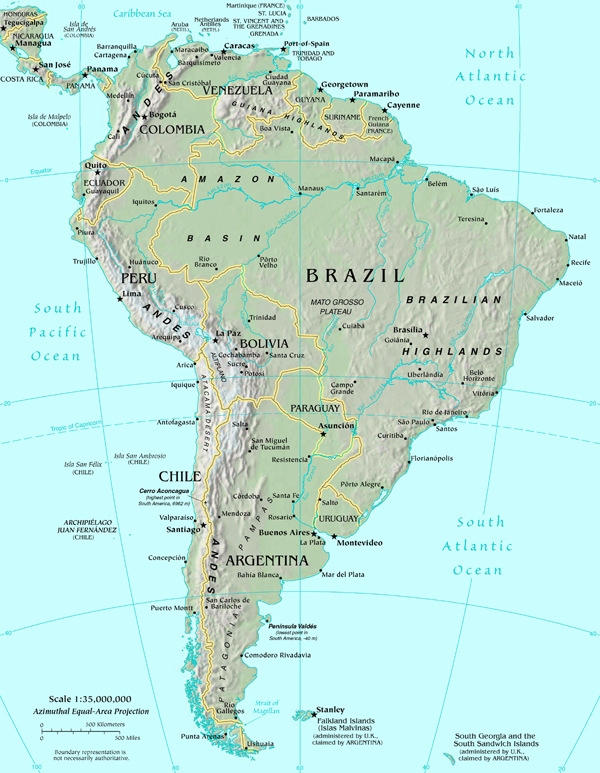Enjoy the delights of NTodd's blog Dohiyi Mir and take part in the NToddathon to help him reach 419,067 vists.
You won't regret it.
“Protection. Conservation. Restriction. Deep ecology. Give me deep technology any day. They don't scare me. "I'm damned if I'll crawl, my children's children crawl on the earth in some kind a fuckin' harmony with the environment. Yeah, till the next ice age or the next asteroid impact." (Moh Kohn, The Star Fraction)/ "This is the fight between God and the Devil. If His Grace is with God, he must join me, if he is for the Devil he must fight me. There is no third way" King Gustavus Adolphus

University graduate, currently working as an Information Assistant for the NHS. Interested in politics, history, sci fi etc.
The Iraqi town of Haditha will now forever be linked with the blood and terror of the US occupation. For many it will be Iraq’s equivalent of Vietnam’s My Lai, a symbol of the violence of imperialism.
Before the war the sleepy town of 70,000 on the banks of the River Euphrates was known mainly for its date growing.
Now it is known for a massacre. And that massacre has underlined the much wider process of invasion, and the urgent necessity for every one of the US and British troops to leave now.
At 7.15am on 19 November 2005, a roadside bomb in Haditha killed a 20 year old US Marine, Miguel Terrazas.
A statement released by the US department of defence said 24 civilians were also killed in the blast.
Witnesses described how US soldiers had dragged five men from a taxi and executed them. Soldiers belonging to the 3rd Battalion, 1st Regiment, 1st Marine Division, then moved from one house to another, seizing the families and killing them as they lay helpless.
This was not just a frenzied reaction. It took the Marines five hours to commit their crimes.
"Am I nervous?" asked Heru Suparwaka, watching the needle of the seismograph sketch a crazy route across the page, accompanied by a high-pitched whine. "Of course I'm nervous."
Mr Heru is part of a small team monitoring Mount Merapi, one of the world's most active volcanoes, from an observation post high on its slopes. The area, on Indonesia's Java island, has been on red alert for weeks, since Merapi began spewing out lava and clouds of gas and hot ash. But since last weekend's earthquake, its activity has intensified dramatically, sparking fears of an imminent eruption.
The volcano lies 30 miles north of the epicentre of the quake, which claimed 5,427 lives, according to latest figures. With 20,000 people injured, and up to 200,000 homeless, it might seem that this portion of central Java has suffered enough. But now the scenario of one major natural disaster followed by another appears more probable than not.

| Your Political Profile: |
| Overall: 10% Conservative, 90% Liberal |
| Social Issues: 0% Conservative, 100% Liberal |
| Personal Responsibility: 25% Conservative, 75% Liberal |
| Fiscal Issues: 0% Conservative, 100% Liberal |
| Ethics: 0% Conservative, 100% Liberal |
| Defense and Crime: 25% Conservative, 75% Liberal |



Last week, as it does every year, Europe Day fell on May 9, marking the day in 1950 when Robert Schuman presented his suggestion for a united Europe. Few people, bar those employees of the European Commission in Brussels who get the day off, bothered to celebrate. Compare that with the garish spectacle set to burst onto television screens this Saturday, when 37 European countries join battle in Athens for the Eurovision song contest. From the Atlantic to the Urals, from Kiev to Cardiff, everyone is invited to the party.
This year Eurovision is 51 years old – older than the European Economic Community, the predecessor of the European Union. Watched by hundreds of millions of viewers across the continent, it also appears to be far more popular than any of the festivals or events dreamt up by the eurocrats in Brussels. Eurovision is an orgy of tacky disco music and instantly forgettable tunes, but it is also a powerful monument to the European project and a barometer of its health.

The UK government might have to bring in new legislation to prevent the Human Rights Act endangering public safety, the lord chancellor has said.
Lord Falconer said cases such as that of rapist Anthony Rice, who murdered a woman while on parole, raised concerns over how the law was working.
The act was also cited when a court ruled nine Afghan asylum seekers who hijacked a plane could stay in the UK.
Human rights groups said the current concerns were not a fault of the act.
"Amending our human rights act because of gross public service failures is like handing a repeat burglar the key to your house," said Shami Chakrabarti, director of campaign group Liberty.
"Without the act, ordinary people in Britain would have precious little protection from maladministration."
"They that can give up essential liberty to purchase a little temporary safety, deserve neither liberty nor safety."- Benjamin Franklin
Labour support has collapsed to a 14-year low following infighting at the top of the party, according to an opinion poll today.
The Populus survey published in The Times, the first conducted since Labour's local election drubbing, shows the Tories have built an eight-point lead over the Government. Backing for Labour has tumbled by six points since early April to just 30 per cent, the party's worst performance in any survey since 1992.
The Conservatives are up four points to 38 per cent, while the Liberal Democrats are down one point to 20 per cent.
Over the past month, the Government has been hit by a series of hugely damaging headlines, from the cash-for-peerages affair to the foreign prisoner release fiasco, and revelations about John Prescott's private life.
April 2003: British soldiers are greeted as liberators as they patrol Iraq's second city. The Parachute Regiment dispenses with hard helmets in favour of red berets as it adopts a softly-softly approach to foster good relations
May 2006: Five British soldiers die as a missile brings down their helicopter. Iraqis celebrate and a firefight kills five more as UK forces rush to the scene. Iraqis continue to be killed in vast numbers throughout the country
A crowd cheers the shooting down of a British military helicopter; petrol bombs set fire to Warrior armoured vehicles; accusations are made that British troops are responsible for civilian deaths, including two children. This is Basra, three years after Iraq's "liberation".
BAGHDAD (Reuters) - Car bombs killed 30 people in Iraq on Sunday and wounded more than 70 in one of the bloodiest spasms of violence of recent weeks as political leaders closed in on a deal to form a national unity government.
The southern city of Basra was largely calm as British military engineers examined the wreck of a helicopter whose apparent shooting-down was followed by clashes between troops and youths chanting triumphal Shi'ite militia slogans.
At least 21 people were killed and 52 wounded when a suicide bomber detonated a car on a crowded street in the Shi'ite holy city of Kerbala, south of Baghdad, police and doctors said. The effect was devastating.
Around the same time, two cars exploded in the capital.
Prime Minister Tony Blair and Chancellor Gordon Brown are to hold talks this weekend about the future direction of the Labour Party.
They come as a growing number of Labour MPs, including allies of Mr Brown, urge Mr Blair to say when he will step down.
Mr Blair overhauled his Cabinet in the wake of Labour's local election losses.
Critics say the reshuffle shows desperation but Labour chairman Hazel Blears said voters were not interested in the "froth" of internal politics.
Tony Blair has suffered a poor night in England's local elections as Labour lost 210 councillors.
The main gainers were the Tories, who had their best results since 1992. The Lib Dems failed to make much headway.
Elsewhere the British National Party doubled its councillors, including winning 11 seats off Labour in Barking. The Greens also made gains.
The prime minister will reshuffle his Cabinet on Friday as he seeks to regain momentum after days of bad headlines.
The projected vote share if the polls were held nationwide shows the Tories on 40%, Lib Dems 27% and Labour 26%. Turnout is estimated at 36% - down three points from 2004.
LONDON (AFP) - British Prime Minister Tony Blair braced for a voter backlash at local elections across England that could end up forcing him to name the day he will stand down from office.
Polling stations in London's 32 boroughs and in other urban centres around England opened at 7:00 am (0600 GMT) on the sunniest and warmest day of the year so far, with first results expected a few hours after they close at 10:00 pm.
Analysts predict that after nine years in power, Blair's governing Labour Party is set for a pounding after being recently buffetted by a sex scandal, the non-deportation of foreign convicts, a cash-for-honours furore and draining public confidence.
Poor results in the race for 4,361 out of 19,579 local council seats could push Blair into a cabinet reshuffle, with ministers most closely implicated in the crises -- all key allies -- most likely to get the chop.
GENEVA (Reuters) - Torture and inhumane treatment are "widespread" in U.S.-run detention centers in Afghanistan, Iraq, Cuba and elsewhere despite Washington's denials, Amnesty International said on Wednesday.
In a report for the United Nations' Committee against Torture, the London-based human rights group also alleged abuses within the U.S. domestic law enforcement system, including use of excessive force by police and degrading conditions of isolation for inmates in high security prisons.
"Evidence continues to emerge of widespread torture and other cruel, inhumane or degrading treatment of detainees held in U.S. custody," Amnesty said in its 47-page report.

Aristotle, Poetics 1448 a-b.
Indeed, some say that dramas are so called, because their authors represent the characters as "doing" them (drôntes). And it is on this basis that the Dorians lay claim to the invention of both tragedy and comedy. For comedy is claimed by the Megarians here in Greece, who say it began among them at the time when they became a democracy, and by the Megarians of Sicily on the grounds that the poet Epicharmas came from there and was much earlier than Chionides and Magnes; while tragedy is claimed by certain Dorians of the Peloponnese. They offer the words as evidence, noting that outlying villages, called dêmoi by the Athenians, are called kômai by them, and alleging that kômôdoi (comedians) acquired their name, not from kômazein (to revel), but from the fact that, being expelled in disgrace from the city, they wandered from village to village. The Dorians further point out that their word for "to do" is drân, whereas the Athenians use prattein.